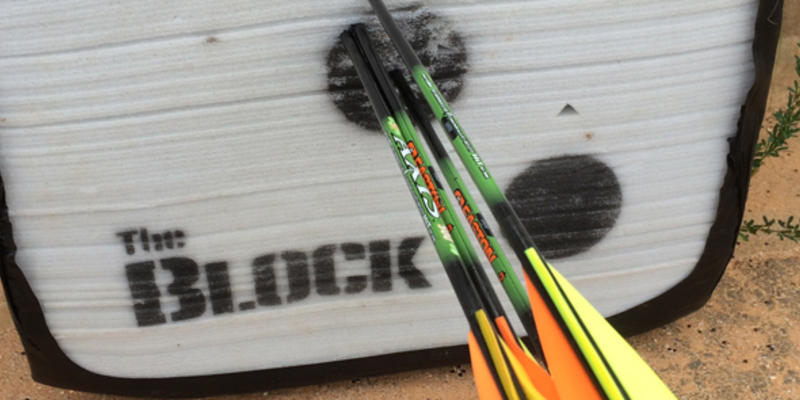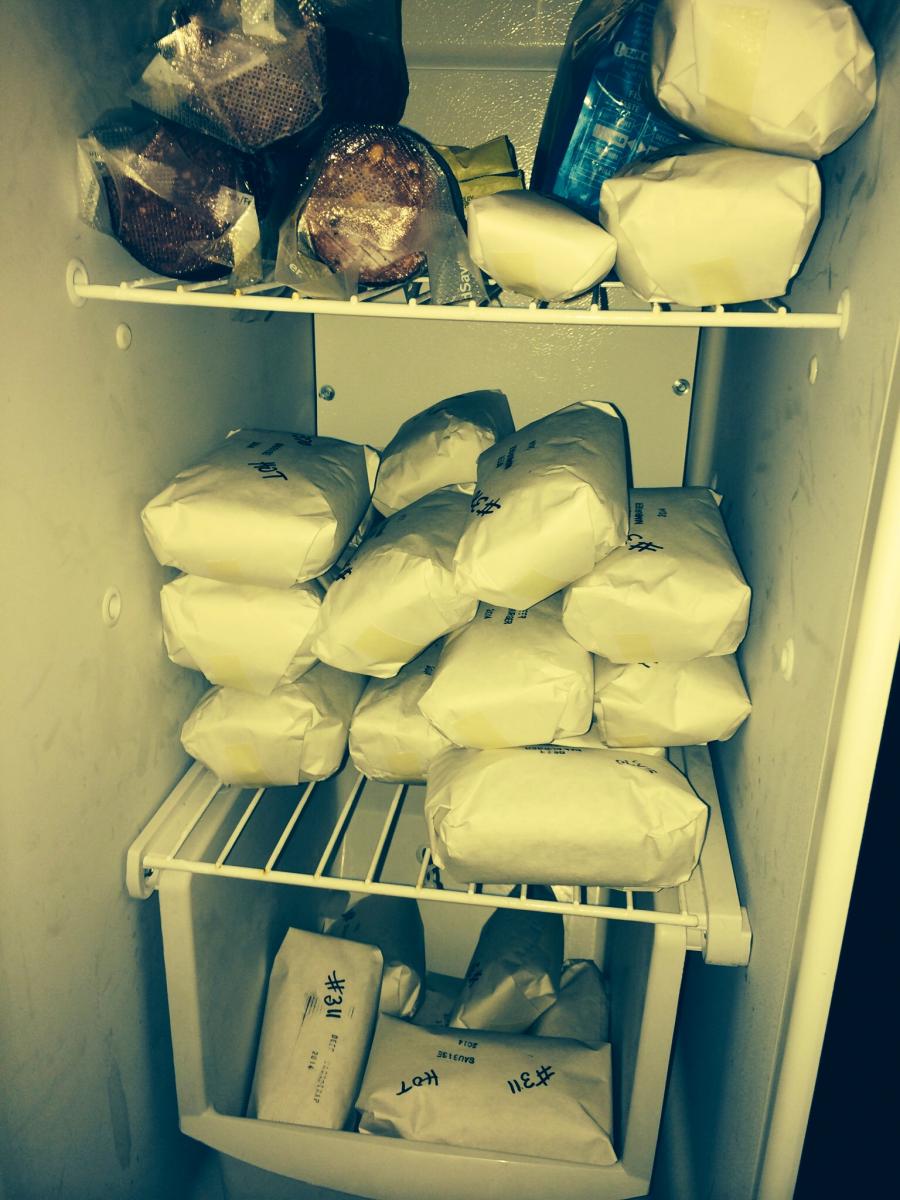
Bullseye
You’d have to live under a rock to not know that gay marriage is now legal. I am eternally grateful to the brave souls who lent their names and faces to the public fight for equality. If you’re not gay, you may be tired of those faces, on TV, in the paper—I understand. I wanted coverage to die down, too, when thoughts turned to family reading headlines and watching news, wondering what they were thinking, and if I wanted to know. But for every public face unfairly scorned, there’s a private one behind the scenes creating change without cameras, lawsuits, or protests. I know, I married one.
My wife (I have to get used to calling her that) is a hunter. She’s skilled with a bow and arrow at 20 yards out, and I wouldn’t recommend challenging her to an archery contest (hint: you’ll lose). We tied the knot in Chicago after 14 years together, just weeks before gay marriage became law in North Carolina, where we also maintain a residence. Who would have thought? We certainly didn’t, and we never dreamed South Carolina would follow suit. Not that it ever diminished our love for this state, even as we lived in places more accepting. With every move, we’d plant our crescent-moon flag in the yard, as if to say to neighbors, “We’re here, but we’d rather be there.”
What South Carolina lacked in progressive politics, it made up for in pluff mud and palmetto trees. We’d miss shrimp and grits and despised poor imitations. We’d miss boiled peanuts and tides that affected our mood like the moon. We’d miss black water and the rolling foothills of the Blue Ridge Mountains. The list of grievances is long, but that’s not to say the moves were all bad. No rebel flag at the State House was always considered a plus, and dry, low humid climates were great. I remember one summer in particular, enjoying lunch in our yard on a midday afternoon in the middle of July thinking, “Wow, this would never be possible at home. Not without sweat rolling down my back.” Still, as interesting and cool as some places were, we missed our state. As much as we learned about ourselves by leaving it, we wanted to go back. As close as we became to friends along the way, we preferred to pack them up and take them home. There are things we dislike here, and things we question, like the existence of no-see-ums (Why, God?), but we accept our flaws with grace and humility and protect them from outsiders not privy to nuances and charm. We resist change, which makes it all the more poignant and meaningful when it happens.
Our last corporate relocation brought us closer to home, and after two years in Texas, we jumped at the chance. My wife decided then to stay put—no more moves. After 6 in 12 years, our days of shuffling like pieces on a chessboard were over. To solidify her commitment to a new work-life balance, she decided to join a hunt club, which proved challenging when she was denied access to several. Either they weren’t accepting new members at the time, or they were (and wanted) men. As shocked and mad as the ridiculously archaic system in place made us, she kept her head down, and persistence paid off. Her name appeared on a wait list for a club that voted to accept her in 2012—their first female member. That year, she didn’t mentioned me. Instead, she got to know everyone and familiarized herself with the rules and bylaws. Her goal was to hunt, but we both knew something more profound would happen just by her presence there as a gay female in that club. The members all quickly bonded with her, as was absolutely no surprise to me (she has that way about her), and, of course, she harvested plenty of wild game to eat. (Foodies, take note: the original field-to-fork, slow-food movement.) Now in her third year, she remains the only female member they’ve admitted. But, more importantly, she is likely the only gay person with whom some of the members interact. Without her influence, how on earth could we hope to reach them?

Hungry, anyone? Freezer full of venison
This year, she introduced me. We purchased a campsite, added a porch, and framed out a cabin on club grounds. She wanted to make sure my presence from time to time would be well received. By then, it was. She had laid the groundwork for a foundation of trust, and I was welcomed with open arms. I don’t think anyone suspected she wasn’t gay. Her perseverance, respect for authority, and personal integrity had won them over. Her fellow hunters—conventional, red state, politically conservative men—had, in spite of themselves, fallen for a lesbian. I suspect it’s her face they see when they tire of the ones on the news. I bet she’s who comes to mind when they try to reconcile, justify, or talk themselves out of worldviews and belief systems that contradict and harm us. That’s grassroots activism if ever it existed.
The world needs both kinds of soldiers: brave public faces willing to push and move the needle of justice in places it wouldn’t otherwise go, as well as foot soldiers on the ground, without glory or recognition, able to infiltrate enemy camps and win people over with trusted hearts and smiles. South Carolina has room for improvement in politics, race relations, and LGBT equality. But there’s no other place I’d rather see blossom. It may be slow and it may be hard, but in the end it will be beautiful. And it will be worth it. My wife said once if she could change one person’s mind, challenge one person’s bias, she’d be happy. Wearing snake boots, sitting quietly in a tree stand, I think she succeeded.